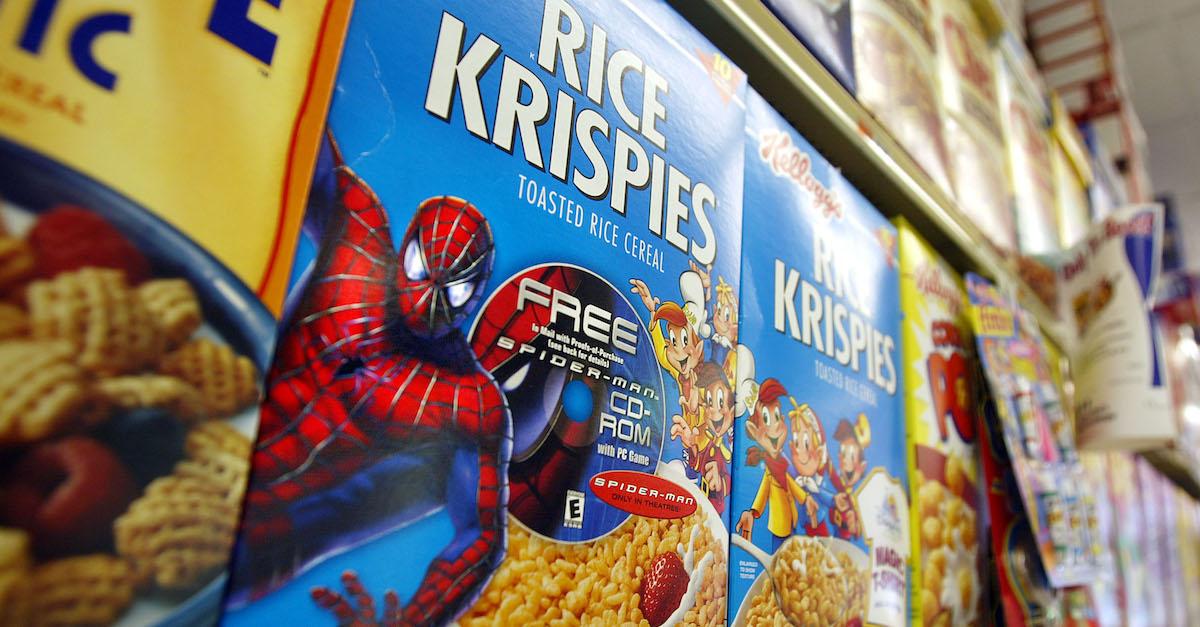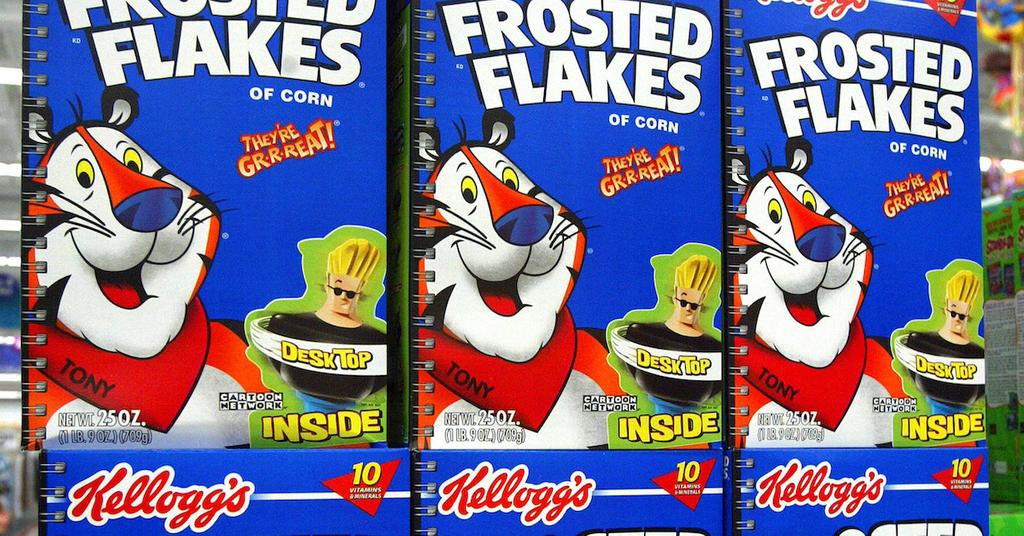Are frosted flakes really the answer to food insecurity, and should a CEO's comments lead to a nationwide boycott? The Kellogg Company is currently facing a growing backlash fueled by public outrage and a perceived disconnect between corporate leadership and the realities of struggling consumers.
The seeds of the current controversy were sown by remarks made by Kellogg's CEO, Gary Pilnick, which quickly spread across social media platforms like TikTok. His suggestion that people struggling to afford groceries could turn to Frosted Flakes for dinner sparked immediate criticism. This statement, perceived by many as tone-deaf and dismissive of the financial hardships faced by a significant portion of the population, ignited a firestorm of negative reactions. The situation has been compounded by the company's labor practices, creating a perfect storm of public disapproval.
The Kellogg Company, a household name synonymous with breakfast cereals and snacks, is now navigating choppy waters, as a consumer-led boycott gains momentum. The controversy has highlighted the increasing power of social media in shaping public opinion and influencing corporate behavior. The call to boycott Kellogg's products is not simply a knee-jerk reaction; it's a culmination of factors including perceived insensitivity, labor disputes, and a growing awareness of corporate ethics.
- Discover New Comics Explore Honeytoon More Start Reading Now
- Vegamovies Guide Features Legality Alternatives What You Need To Know
The origins of the protest can be traced back to a recent hearing which garnered millions of views. The hearing was a platform for several individuals to voice their opinions, including Hari, who announced a boycott of Kellogg's. In October, she planned to deliver over 400,000 petitions to Kelloggs headquarters in Battle Creek, Michigan. When she arrived in Battle Creek, over 1,000 people joined her in the march on the company's headquarters. This show of public solidarity underscores the depth of feeling against Kelloggs actions and statements.
Further fueling the fire is the fact that Kellogg's pledged in 2015 to remove artificial flavors and colors by 2018. However, nearly a decade later, they admit that 15% of their cereals still contain these ingredients. This apparent failure to deliver on its promise has added to the narrative of corporate hypocrisy, as has the company's stated intention to replace striking workers. Such actions are a flashpoint for public outrage.
The issue is complex, touching upon labor relations, corporate responsibility, and the ethics of marketing in times of economic hardship. The boycott, now gaining traction on platforms such as TikTok, is a clear indication of public discontent.
- Vegamovies 2025 Your Guide To Free Movie Streaming Alternatives
- Katmoviehd Risks Rewards Of Free Movies What You Need To Know
The question of whether Kellogg's can weather this storm remains open. The company's response, or lack thereof, to the public's concerns will likely shape the ultimate outcome. As the situation unfolds, the world is watching to see how the company deals with the growing discontent, or whether the voices of the consumer will be the deciding factor.
The impact of social media on consumer behavior is undeniable. The speed at which information spreads and the ability of individuals to organize and mobilize on platforms like TikTok have amplified the call for a boycott. A single video can go viral and quickly reach millions, sparking a chain reaction of commentary, criticism, and action. This is a powerful force, especially in the era of consumer activism.
The controversy surrounding Kelloggs also touches on broader societal issues. The gap between executive compensation and the economic struggles of many consumers is significant. When this imbalance is highlighted through insensitive remarks, it can trigger a backlash. The public is not only seeking change in the companys policies but also is demanding more transparency and accountability.
The question of how a company should respond to public criticism is also at play. Does Kellogg's choose to remain silent, hoping the issue will blow over? Or does the company engage in a more proactive approach, perhaps through public apologies, policy changes, or corporate social responsibility initiatives? The choice of action has a big effect on the outcome.
The boycott of Kellogg's is a test of the power of the consumer in the current world. The incident reflects on the complex and changing relationship between businesses and their customers. Whether Kelloggs actions will ultimately be successful in maintaining the loyalty of their customers remains to be seen.
While the focus of the boycott is Kellogg's, the underlying issues extend to a broader conversation about corporate responsibility and the ethics of business in the modern age. The case serves as a case study for other companies, showing how actions and statements can affect a company's brand reputation.
The effectiveness of the boycott is uncertain, but the fact that it has gained such rapid momentum across multiple social media platforms, with people talking about boycotting Kellogg's starting April 1st, is a warning sign. What is clear is that the situation involving the cereal maker has created a shift. Consumers can be very vocal and will not tolerate corporate behavior and messaging perceived as out of touch. It also shows the public's desire to engage and drive positive change.
The story also raises questions about labor relations. The company's decision to permanently replace striking workers is a contentious move. Some see it as a justifiable business decision. Others view it as a tactic to undermine workers' rights.
The boycott of Kelloggs is an unfolding situation. It is the result of a variety of factors. It shows the power of public opinion and how quickly a company's reputation can be impacted by a single comment. It is worth watching to see how the situation progresses and what its ultimate effect on Kelloggs will be.
| Issue | Details |
|---|---|
| Triggering Event | Comments by Kellogg's CEO, Gary Pilnick, suggesting Frosted Flakes for dinner for those struggling financially. |
| Public Reaction | Widespread backlash on social media, particularly on TikTok. |
| Key Complaints | Perceived insensitivity, dismissiveness towards economic hardship, labor disputes, corporate hypocrisy, failure to keep promises. |
| Boycott Calls | Organized by consumers and labor advocates, gaining traction on social media. |
| Labor Dispute | Workers on strike, calls for boycott in support. |
| Corporate Response | Unclear, but public pressure growing. |
| CEO's Salary | Pilnick's annual salary is $1 million plus up to $4.4 million more in bonuses as of September 2023. |
| Sales Reported | The company reported $651 million in net sales as of December. |
| Artificial Ingredients | Kellogg's pledged to remove artificial flavors and colors by 2018, but some cereals still contain them. |
| Subreddit Involvement | The r/antiwork subreddit attempted to sabotage the hiring system. |
| Petition Delivery | Hari delivered over 400,000 petitions to Kelloggs headquarters in Battle Creek, Michigan. |
- Sone 436 Unveiling Insights News What You Need To Know
- Unmasking Subhashree Sahu Mms Scandal Privacy Viral Video Impact


